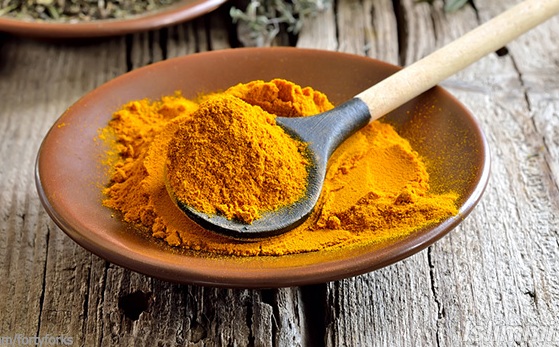You are probably aware of a bright yellow spice called turmeric. It is usually used in Indian dishes and golden milk lattes. Despite the fact that there are no special studies that would prove the medical properties of turmeric, it has been used in Ayurvedic medicine for centuries. The popularity of turmeric is constantly growing and many people all over the world claim that it is quite helpful with different medical conditions.
In some cases, turmeric actually differs from other spices. Turmeric gets its healing power from a natural chemical called curcumin. Studies have shown that curcumin has a number of powerful properties such as anti-inflammatory, antimicrobial, and analgesic effects. In this article, we will tell you about four surprising health benefits of turmeric.
Turmeric is a great anti-inflammatory remedy
The most significant benefit of turmeric is its anti-inflammatory properties. The fact is that most illnesses are associated with inflammation, so the use of foods and herbs that are able to help the body balance inflammation might be quite helpful. Although the mechanism explaining why turmeric can help suppress inflammation in the body is not entirely clear, it can work by interacting with many factors that control inflammation.
Determining the useful amount of turmeric per day for a healthy adult can theoretically help everyone in the long run, from helping to eliminate an inflammatory health condition to a little relief from the intense workouts you did yesterday. Turmeric also accumulates the amount of essential antioxidant enzymes that protect against free radicals (dangerous chemicals that can damage your cells and DNA).
It has some pain-relieving properties
If you are looking for at-home chronic back pain treatment or trying to recover after an injury, turmeric can help you to get rid of the pain. For some people, curcumin is associated with pain-relieving and anti-inflammatory properties. Turmeric probably works to reduce pain by suppressing the same enzymes that over-the-counter painkillers like Ibuprofen inhibit.
But the catch is that if you want to see a result, you will probably have to take supplements from 8t to 12 weeks with about 1,000 mg of curcumin per day. You should also know that some studies suggest that turmeric supplements are not stronger than common ibuprofen, so it is better to use it in case you are suffering from severe pain.
Turmeric helps to reduce mini-breakouts on skin
Although this probably won’t be the number one recommendation from your dermatologist, turmeric can smooth out your skin tone. It has antioxidant properties that affect sunspots and free radicals that cause wrinkles. Turmeric is also able to treat some inflammatory skin conditions like acne and rosacea.
It may sound somewhat strange, but you can actually eat your way to better skin (curry once or twice a week). You can also use skincare products that already contain turmeric. To stay on the safe side, it is not recommended to apply turmeric on the skin because it can leave stains.
It has mood-enhancing properties
Adding a little bright yellow spice to your diet can also warm your mood. Some studies found that people with severe depressive disorder reacted to 1000 mg of curcumin almost the same as to 20 mg of Prozac. And those who took them together experienced the greatest relief from their symptoms.
Although preliminary studies indicate that turmeric helps improve mood, this spice can cause stomach problems. Moreover, you may need two to three months of taking turmeric to experience any results.

